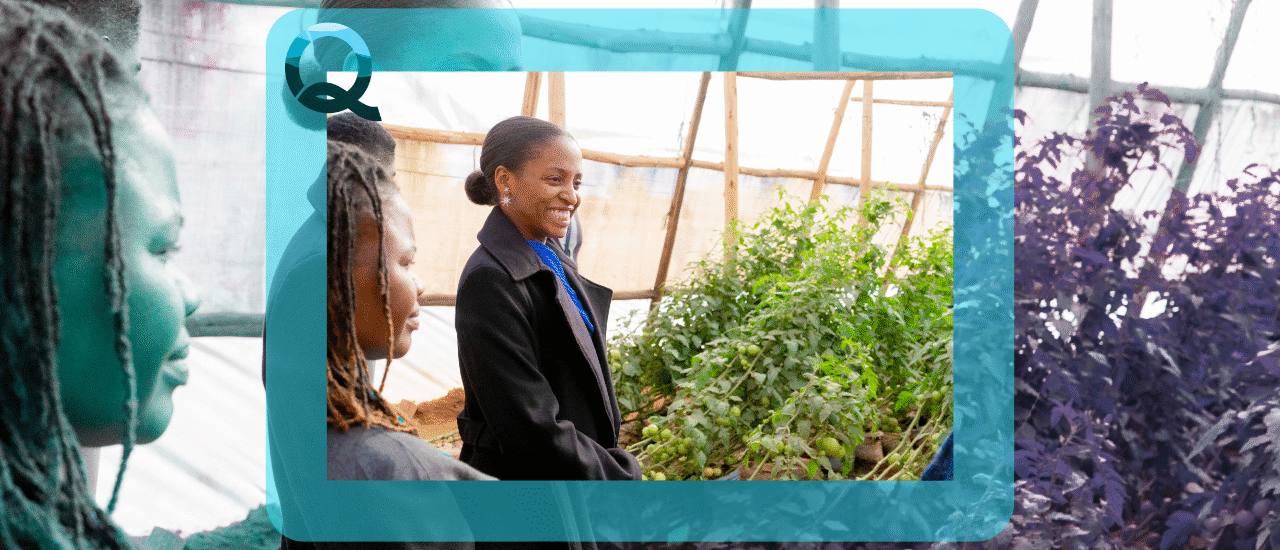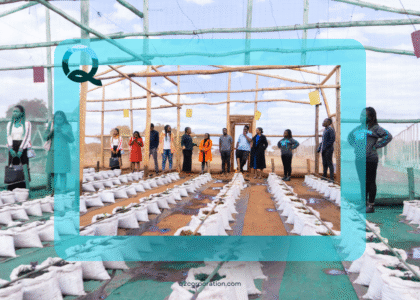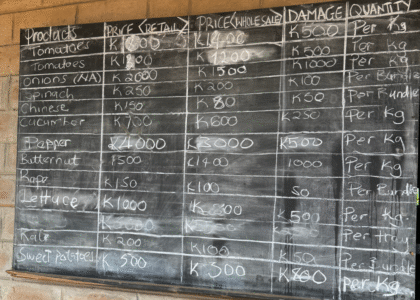Nthanda Manduwi’s journey into entrepreneurship and systems innovation begins at the water’s edge in Mangochi, Malawi.
She grew up in Maldeco Fisheries — what she fondly calls a “smart town” — where her father, an engineer with Press Corporation, oversaw the building of aquaculture dams and the purchase of the iconic “Kampango” boat.
For young Nthanda, these were more than industrial projects; they were early demonstrations of how infrastructure, value chains, and community livelihoods could be shaped by vision and technical expertise.
Years later, during a trip back home, Nthanda found herself on the water with her siblings, before the same aquaculture dams, now dormant. At that very moment, her own servers at Bien Corp had crashed — a symbolic reminder that even the most advanced digital systems can break, just as traditional systems can fall into disuse without proper stewardship. It was a turning point: she began to see agriculture not only as Malawi’s most fundamental industry, but also as a sector that needed new systems of value creation. That trip sparked her shift in focus from purely digital ventures to AgTech and sustainability.
Her entrepreneurial story, however, started long before this epiphany. In 2013, she launched a personal blog that evolved into Bien Corporation Africa, a creative agency that professionalized digital storytelling and branding for Malawi’s travel and tourism industry. By aggregating creative talent and producing content at international standards, Bien became both a business and a proof of concept: local ecosystems could compete globally with the right structures in place.
This insight carried into Ntha Foundation (2018) and Kwathu Kollective (2020), platforms she built to support young innovators through training, mentorship, and co-working hubs. Their flagship program, Digital Skills for Africa (DSA), reached over half a million learners across 20 countries. These ventures established her as one of Africa’s most impactful young entrepreneurs, but they also revealed a challenge: the economics of EdTech in Africa were not sustainable (for now). For all the impact, financial viability remained elusive.
That realization fueled her decision to pursue further education. After completing a Master of Science in Entrepreneurship (Digital Transformation) in Malawi, she enrolled at Michigan State University’s Broad College of Business for her MBA (STEM-designated, Class of 2026). She chose MSU deliberately — the university’s deep agricultural research and Midwest farming culture aligned perfectly with her ambition to pivot into AgTech.
At MSU, a surprising detour reshaped her trajectory once more. During MBA recruitment season, she landed a coveted internship at Microsoft Xbox, working within the ID@Xbox program. Initially, it felt far removed from her AgTech aspirations. But while analyzing over 140 titles, leading global expansion research, and building Power BI dashboards for developer acceleration, she had an unexpected insight: the mechanics of simulation games mirrored the very systems she was trying to build in agriculture. Farming could be gamified, not as entertainment alone, but as an engine for training, awareness, and systemic engagement.
This revelation gave rise to Q2 Corporation — her newest and boldest venture. Q2 is built on a symbiotic model:
- Kwathu Smart Innovation Village Farms, real-world agricultural pilots that model sustainability, community engagement, and value chain creation.
- Q2 Games, interactive platforms that gamify these models, making farming and community systems accessible to youth, schools, governments, and global players.
Together, the physical farms and the digital games create a feedback loop — reality informs simulation, and simulation drives awareness, training, and innovation that circles back into reality. It is a vision rooted in her father’s engineering legacy, sharpened by her entrepreneurial experiences, expanded by her global roles at the UN, EU, and World Bank; and redefined by her time at Michigan State and Microsoft Xbox.
Today, Nthanda Manduwi stands at the intersection of agriculture, gaming, and systems innovation. Through Q2, Bien Corporation Africa, Kwathu Kollective, and the Ntha Foundation, she is building interconnected enterprises designed to future-proof African communities.
Want to Work with Us?
Investors & partners: Work with Q2 to scale Malawi pilots, co-finance Smart Village nodes, and co-publish Q2 Sims across mobile app stores and console portals: invest@q2corporation.com
Developers & creators: Join Kwathu Kollective as we build Africa’s ag-simulation franchise.
Public sector & donors: Co-fund digital extension and IoT at the last mile to de-risk farmer adoption. Get in touch: contact@kwathu.org
Together, let’s future-proof global communities through smart farming and innovative play.





